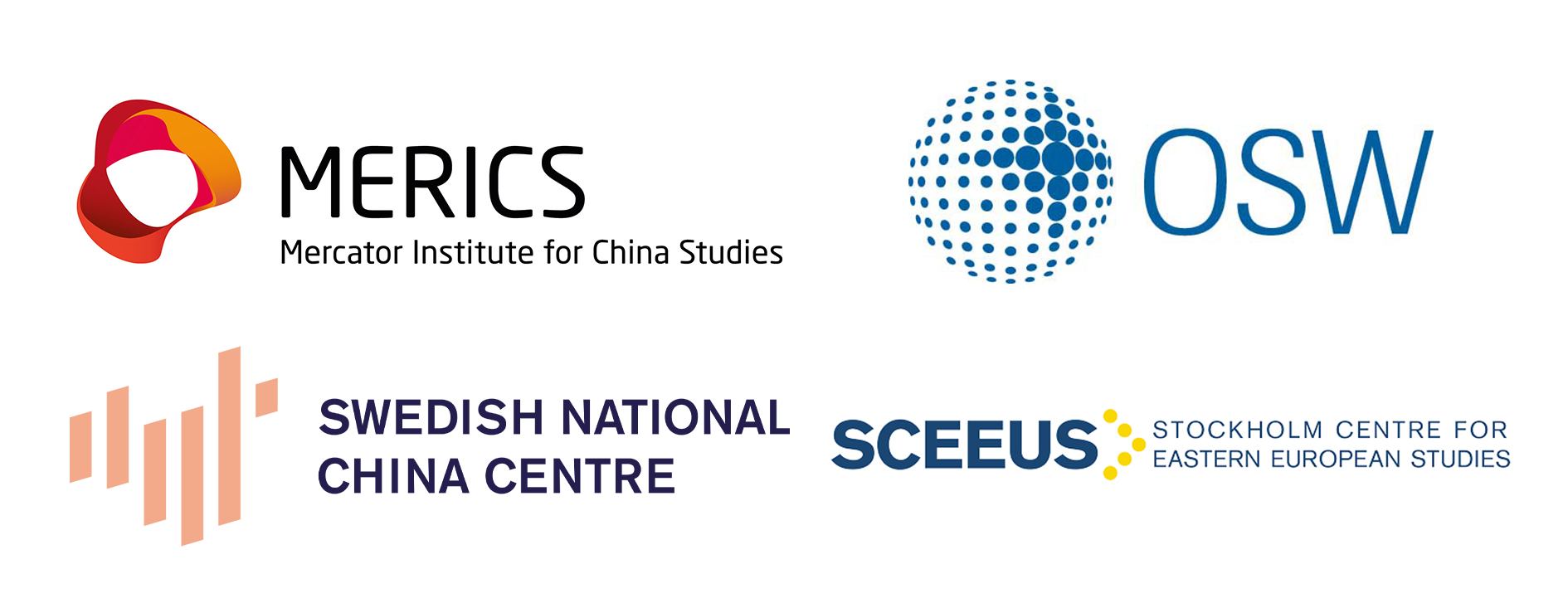

Friends moving apart? China and Russia at the United Nations
China and Russia continue to coordinate their voting in the United Nations (UN), reflecting their close strategic partnership. However, voting data from 2018 to 2024 shows that while alignment remains high in both the General Assembly and the Security Council, it has gradually declined over this period, says Patrik Andersson.
General Assembly: declining alignment, rise in opposing votes
In the General Assembly, China and Russia still vote in alignment most of the time, but the rate of convergence has dropped from approximately 77 percent to 67 percent between 2018 and 2024. This decline is primarily due to an increase in the share of opposing votes – cases where one votes in favor and the other against. Yet partial splits, where one country votes yes or no and the other abstains, have also risen slightly.
Certain resolutions consistently produce opposing votes. For example, on the recurring resolution calling for a global moratorium on the death penalty, China votes no while Russia votes yes. This reflects their domestic policies: Russia has upheld a moratorium on the death penalty since 1996, whereas China is estimated to carry out thousands of executions annually – more than the rest of the world combined.
Divergence has increased in areas such as humanitarian arms control, including resolutions on cluster munitions and landmines. On the annual resolution regarding the implementation of the Convention on Cluster Munitions (CCM), China started to vote in favor in 2021, instead of abstaining, while Russia has mostly voted against. This earlier partial split has thus transformed into opposing votes. Neither country is a signatory to the CCM, but China has stated that it “ascribes to the goal and principles” of the convention. Russia, by contrast, remains the only country to vote against the resolution, although it abstained in 2018 and 2020.
A similar pattern is evident in the annual resolution promoting the implementation of the Anti-Personnel Landmines Convention, also known as the Ottawa Treaty. China has consistently voted in favor, while Russia has moved from abstaining (2018–2022) to voting against in 2023 and 2024, again turning a partial split into opposing votes.
In addition, new agenda items have introduced further disagreements. On the Agreement on Marine Biological Diversity of Areas beyond National Jurisdiction (BBNJ, developed under the UN Convention on the Law of the Sea, UNCLOS) adopted in 2023, China voted in favor in both 2023 and 2024, while Russia voted against.
Similarly, on a 2024 resolution calling for responsible use of artificial intelligence in the military domain, China voted yes and Russia no. A related resolution on addressing risks posed by lethal autonomous weapons systems – another emerging technology – first appeared in 2023 and was voted on again in 2024, with China abstaining and Russia voting against, producing a partial split.
UN Resolutions concerning nuclear disarmament and addressing the humanitarian consequences of nuclear weapons have increased significantly. Russia has voted against in most cases, while China has generally supported or abstained, resulting in declining alignment due to both opposing votes and partial splits.
Partial splits have also increased on sensitive geopolitical issues. On five of the Ukraine-related resolutions between 2022 and 2024, China abstained while Russia voted against. At the same time, both countries have jointly opposed several other Ukraine-related resolutions, mainly those addressing human rights in Russian-occupied territories. On the International Criminal Court (ICC) Report resolutions in 2023 and 2024, which summarize the Court’s activities and findings, China abstained while Russia voted no (before 2022, these resolutions were adopted without a vote).
Neither country is a member of the ICC, but their diverging votes reflect differing approaches: Russia’s opposition is likely part of its broader effort to delegitimize the ICC following arrest warrants for President Vladimir Putin and other senior officials, while China’s abstentions reflect a more cautious, neutral stance.
Security Council: high coordination, rise in partial splits
In the Security Council, China and Russia do not cast opposing votes. Resolutions usually do not proceed to a vote when a permanent member signals an intention to veto. However, partial splits – typically with China voting yes and Russia abstaining – have become much more frequent. In 2018, they only diverged on two resolutions (4 percent of total) while in 2024, eight resolutions produced partial splits (17 percent).
Some issues produce recurrent splits. On annual votes to renew the mandate of the UN peacekeeping mission in Western Sahara, China generally votes in favor while Russia abstains. This is largely consistent with China’s rhetorical support for UN peacekeeping missions. While Russia continues to support many peacekeeping renewals, it has shifted towards more frequent abstentions in recent years, signaling a preference for maintaining flexibility and avoiding commitments it views as misaligned with its interests.
Biennial votes on the appointment of the Prosecutor for the International Residual Mechanism for Criminal Tribunals (IRMCT) also result in partial splits. China votes yes, while Russia abstains. The IRMCT is a legacy institution within the UN system that was established to complete the remaining tasks of the international tribunals for Rwanda and the former Yugoslavia. China’s support could be seen as reflecting its general alignment with UN-based legal mechanisms and multilateral frameworks. Russia’s abstention signals its opposition to the mechanism, which it has frequently criticized, and a preference for transferring such responsibilities to national jurisdictions.
Partial splits in the Security Council have increased sharply since 2022. For instance, on the Emergency Special Session resolution on Ukraine following Russia’s full-scale invasion, Russia voted against while China abstained (this was a procedural resolution, which, unlike substantive resolutions, requires only nine affirmative votes and is not subject to the veto power of permanent members). Similar splits occurred on resolutions concerning humanitarian ceasefires in Gaza (2023 and 2024) and in Sudan (2024), with China voting in favor and Russia abstaining. Resolutions concerning the protection of humanitarian personnel and counter-terrorism sanctions reviews likewise produced a split in 2024.
On the recurring resolutions renewing authorizations for maritime inspections off Libya, both countries voted in favor from 2018 to 2021. However, in 2022 and 2023 Russia abstained while China continued to support the resolutions, before both abstained in 2024.
Conclusion: strategic alignment under strain
China and Russia remain closely aligned at the UN, particularly in the Security Council. But voting patterns and trends reveal a more complex picture.
The rise in opposing votes in the General Assembly and partial splits in the Security Council, especially on humanitarian, legal, and emerging technological issues, suggests that their strategic partnership does not always translate into aligned multilateral behavior.
This divergence may reflect differing priorities, reputational concerns, or tactical approaches to global governance. China’s relatively cautious engagement with multilateral norms contrasts with Russia’s increasingly confrontational posture, especially on issues directly affecting its interests (even as Beijing pursues longer-term ambitions to reshape global governance).
Going forward, there are a few areas to watch out for that may reveal China and Russia’s evolving alignment:
- Geopolitical flashpoints: Voting behavior on Ukraine, Gaza, and other conflict zones will reveal how the two states balance loyalty to their partnership with reputational costs and diverging interests.
- Emerging technologies and norms: Resolutions on artificial intelligence, autonomous weapon systems and cyber governance (particularly relating to regulation of warfare) may expose new differences, as well as deepen existing ones, in normative preferences and priorities.
- Legal institutions: Continued divergence on issues related to international legal frameworks, including the ICC and the BBNJ agreement, may signal growing tensions in how China and Russia perceive and engage with global legal governance.
- UN reform: A longer-term development to study is how each country positions itself in the debate over Security Council expansion, as such reforms could affect their respective influence and strategic interests in different ways.
The author thanks Ottilia Mackerle for valuable assistance with data collection.
This analysis is part of the China-Russia Dashboard, a collaborative research effort of the Centre for Eastern Studies (OSW), MERICS, and the Swedish National China Centre (NKK) and Stockholm Centre for Eastern European Studies (SCEEUS) at the Swedish Institute of International Affairs (UI). Explore the project here.


